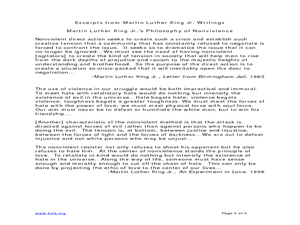Crafting Freedom
Thomas Day's Letter to His Daughter, Mary Ann
Why is a letter a better way to learn about a person than a different primary source? Explore Thomas Day's ideas and advice to his daughter in a letter from 1851, which details the struggles of the American South before the Civil War....
Crafting Freedom
F.E.W. Harper: Uplifted from the Shadows
What is stereotyping, and how do we handle stereotyping in our daily interactions? Your young historians will not only have the opportunity to learn about the first African American woman to publish a short story–Frances Ellen...
Library of Virginia
Antebellum Freedom
From indentured servitude to involuntary race-based servitude, slavery has taken many forms in American history. Class members examine three manumission petitions that reveal how the rights of African Americans and African American...
North Carolina Consortium for Middle East Studies
Voices from the Trans‐Atlantic Slave Trade
Young historians trace the roots of African slavery and learn about the causes and effects of the Trans-Atlantic slave trade through a PowerPoint presentation and by reading and discussing excerpts from the book Copper Sun.
Curated OER
The Role of African Slaves on South Carolina Rice Plantations
Fourth graders investigate the role of African American slaves in rice plantations. In this slave life lesson, 4th graders discuss the products produced in the 13 colonies. Students discuss the importance of rice to South Carolina's...
Curated OER
Entrepreneurs and the African-American Dream
Students make a simple graph of labor supply and labor demand in the North and South in the early twentieth century. They conduct research to identify top contemporary African-American entrepreneurs.
Curated OER
African Americans Seen Through the Eyes of the Newsreel Cameraman
Fifth graders examine the portrayal of African Americans in the media. In this socio-political lesson, 5th graders view various news clips of African Americans and discuss the way they are presented. Students create narrations of the...
Curated OER
African Americans in Oregon
Students interpret historical evidence presented in primary and secondary resources. In this African American history lesson, students examine the African American experience in Oregon.
Curated OER
African Americans and the Military of World War II
Fifth graders view a news reel of African Americans in World War II. In this World War II lesson plan, 5th graders discuss the newspaper clippings they get to view and hypothesize about why the African Americans use military news clips....
Curated OER
Henry Laurens in the Tower of London
Eighth graders examine primary sources regarding Henry Laurens and his time in the Tower of London. In this American Revolution lesson, 8th graders create illustrated journals based on their research of imprisonment of Henry Laurens.
Curated OER
The Battle of Fort Moultrie
Eighth graders interpret historical evidence presented in primary and secondary resources. In this American Revolution lesson, 8th graders examine the Battle of Fort Moultrie and create their own historical narratives regarding the event.
Curated OER
The National Women's Party and the Enfranchisement of Black Women
Young scholars analyze the attitudes and hostility given to African-American women within the National Women's Party. They finish the lesson by examining another moment in the party's history and writing about it.
Smithsonian Institution
Fighting For Freedom: The Stono Rebellion and Free Frank McWhorter
Travel back in time to the Stono Rebellion. Young historians research historical figures who played a role in African Americans' fight to escape slavery. Scholars research material, complete handouts, participate in group discussion, and...
Smithsonian Institution
Spirits Across the Ocean: Yoruban and Dahomean Cultures in the Caribbean Brought by the Slave Trade
Much of Latin American music owes its origins to the slave trade. Peoples from the Yoruban and Dahomean cultures brought with them the distinctive rhythms, time signatures, and eighth note patterns that now characterize Caribbean music....
Curated OER
Slave Auctions in South Carolina
Students examine primary sources in the form of auction records, create frequency charts, graphs and diagrams that they analyze to anwer questions followed by the writing of a paper that demonstrates their comprehension of the lesson plan.
Curated OER
African Americans in California’s Heartland – The Civil Rights Era
Events related to the Civil Rights Movement in Sacramento, California during the 1960s offer class members an opportunity to compare the nonviolent resistance approach favored by Dr. Martin Luther King and the NAACP with those of the...
Crafting Freedom
Frances Ellen Watkins Harper: Lover of Literacy
This, the sixth in a series of 10 related resources, examines the life and works of Frances Ellen Watkins Harper, an African American author, born in 1825, who advocated literacy for both free and enslaved African Americans.
Curated OER
Desmond Tutu
Sixth graders examine the contributions of Desmond Tutu and the history of apartheid in South Africa. They listen to the book "The Story of Ruby Bridges," listen to a lecture and analyze a timeline, conduct an interview, and participate...
American Institute of Physics
Dr. Gates and the Nature of the Universe
What do Russian nesting dolls have to do with physics? They make a great demonstration tool for explaining Dr. Sylvester James Gates, Jr.'s string theory to young scientists. A two-part lesson first introduces learners to Dr. Gates' life...
Curated OER
Civil Rights in America
Seventh graders visit the Smithsonian and are shown different exhibits. They are to make their own drawing about one of the exhibits and write about the experience.
Stanford University
Civil Rights or Human Rights?
Young citizens consider the American civil rights movement as part of the global struggle for human rights. After using a timeline activity to learn about the major events in the civil rights movement, class members study Malcolm X's...
Curated OER
Melba Pattillo and Ruby Bridges: Two Heroes of School Integration
Learners put themselves in the shoes of students who integrated Little Rock High School in 1957-58. Note: The primary resources in this activity provide powerful and poignant descriptions of what those students faced.
Library of Congress
To Kill A Mockingbird: A Historical Perspective
Learners study the novel, To Kill a Mockingbird. Through studying primary source materials from American Memory and other online resources, students of all backgrounds study the relationships between blacks and whites.
Curated OER
Ceramics - African African American Folk Art
Pupils gain appreciation and knowledge of art history, specifically the African American contributions to folk art made in the South Carolina region.

























